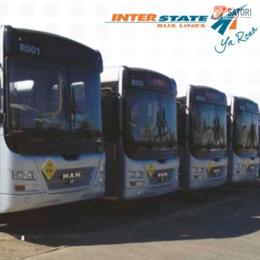Image created by AI
Cape Town and PRASA Sign Rail Management Service Level Plan Amidst Criticism
After extended negotiations, punctuated by legal action and threats of intergovernmental disputes, the City of Cape Town and the Passenger Rail Agency of South Africa (PRASA) have inked a Service Level Plan (SLP), potentially setting the stage for a major shift in the management of Cape Town's beleaguered commuter rail services.
The agreement, finalized on December 5, allows the City to exercise oversight over PRASA’s annual performance with specific focuses: the revitalization of stations and the increase in both train sets and services. This partnership aims to recover and enhance the passenger rail system that has suffered from severe mismanagement, vandalism, and theft, especially pronounced since 2020.
The SLP establishment follows a dire period for Cape Town’s Metrorail, where service breakdowns significantly impacted daily commuting. “This is a major stride towards enhancing the quality and reliability of our rail services,” noted Mayor Geordin Hill-Lewis in his council address. A joint committee between PRASA and the City will monitor the execution of the plan, promising more structured and reliable public transport solutions.
Among the detailed provisions, PRASA is tasked with drafting regular reports for the City, marking its progress on key commitments including the deployment of additional train sets and recommissioning of services to boost the number of daily trips and passengers.
The City, in turn, is committed to facilitating necessary municipal services that support the rail system, fostering transit-oriented development along rail corridors, and ensuring expedited processes through its service and development planning departments.
From a financial perspective, the effective overhaul of the Metrorail could save lower-income households approximately R932 million annually, a significant socio-economic boost, as highlighted by the mayor.
However, not everyone is convinced about the potential success of this arrangement. Rail activist organization #UniteBehind has expressed reservations about the robustness of the SLP. “The document is notably thin on enforceable commitments and lacks detailed timelines or measures, which are essential for a clear roadmap to revitalize commuter services,” remarked Zukie Vuka, Executive Director of #UniteBehind.
Vuka criticized the plan for merely repackaging existing strategies rather than presenting a substantive framework with defined responsibilities and accountability for PRASA executives. She fears without a structured execution plan, the shortcomings of past years could persist, undermining the SLP’s objective.
Despite these criticisms, both the City of Cape Town and PRASA appear committed to moving forward with the new framework hoping to restore commuter confidence and functionality to the rail system. The future of Cape Town's urban mobility, particularly for its economically disadvantaged residents, hinges on the successful implementation of this new Service Level Plan.



